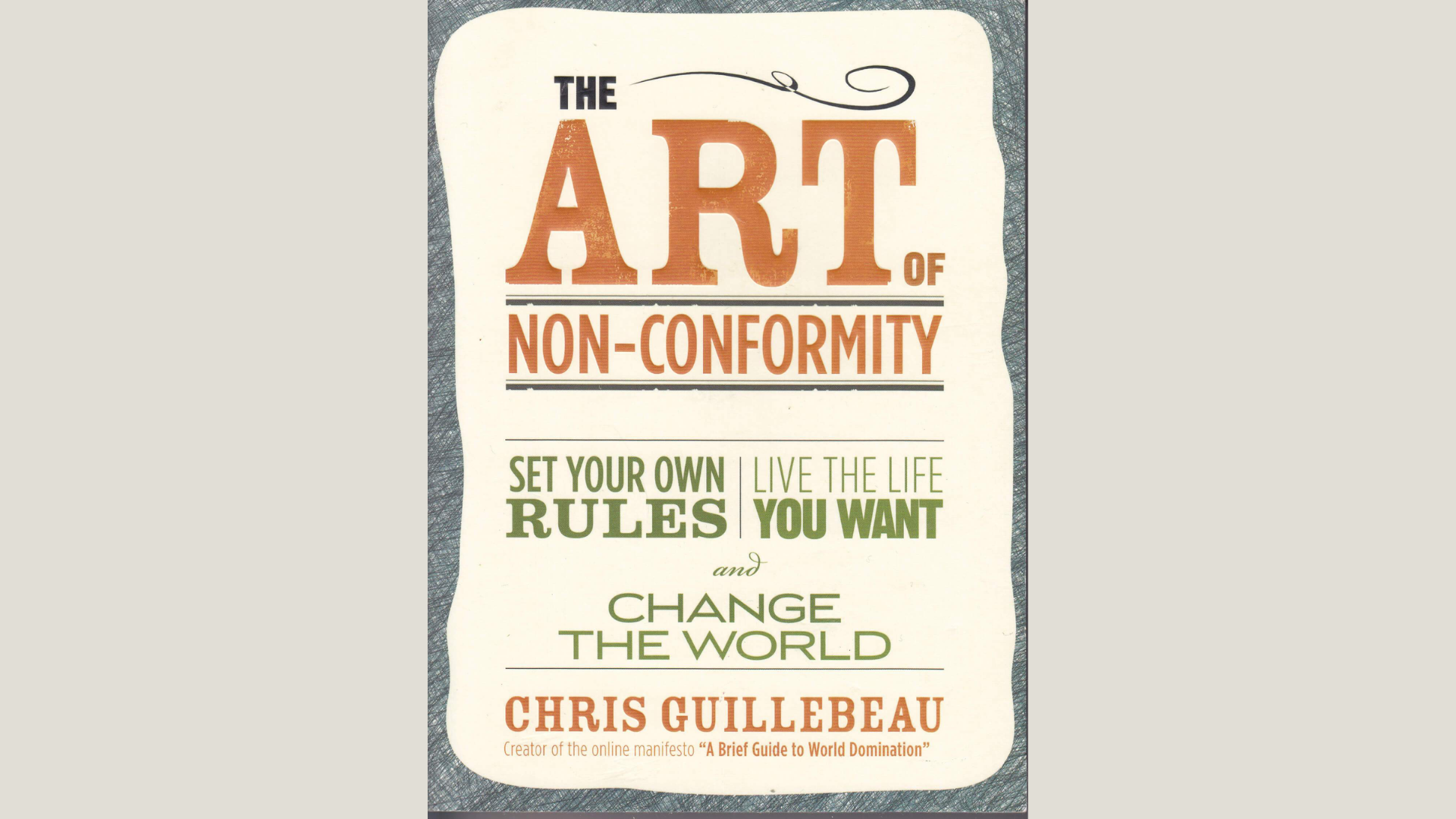Summary: The Art of Non-Conformity by Chris Guillebeau

Chris Guillebeau’s The Art of Non-Conformity is more than a guide to rejecting societal norms; it is a manifesto for living intentionally and creatively. In this deeper exploration, we’ll examine the book's philosophical underpinnings, practical advice, and relevance in a world increasingly defined by conformity and consumerism.
The Core Philosophy: Questioning Societal Constructs
At its heart, The Art of Non-Conformity challenges the dominant narratives that dictate how we should live. Guillebeau’s critique of societal structures isn’t about rebellion for its own sake but about reclaiming autonomy. He argues that systems like education, corporate hierarchies, and retirement plans are designed to benefit institutions, not individuals.
A powerful example is his take on traditional education. He questions whether the significant investment in time and money is always worth it, especially if it doesn’t align with a person’s goals. Guillebeau carved a different path by rejecting traditional employment and focusing instead on self-directed learning and entrepreneurship.
“Don’t live someone else’s life. This is the only chance you get to do it your way.”
Redefining Success in a Hyper-Connected World
In an age of social media, where success is often equated with external validation, Guillebeau’s approach to personal fulfillment feels particularly urgent. He emphasizes that success is highly personal and should not be dictated by societal standards like wealth, status, or fame. This concept forces readers to engage in self-reflection:
• What makes me feel fulfilled?
• Am I pursuing goals for myself or for approval from others?
By redefining success, Guillebeau empowers individuals to focus on what truly matters to them: financial independence, creative freedom, or meaningful relationships.
🎓 Recommended Course: Dare to Be Different — For FREE!
Inspired by the book summary? Go deeper with our FREE Nonconformity Course on ApolloSkills.com! 🚀
✔️ Master the art of thinking independently
✔️ Embrace your unique path to success
✔️ Turn bold ideas into reality
Living Unconventionally in Practical Terms
While the book’s philosophical aspects are inspiring, Guillebeau doesn’t shy away from practical advice. He provides actionable strategies for readers to design unconventional lives:
1. Work Outside the System: He advocates for alternative career paths, such as freelancing, remote work, or starting a business.
2. Pursue Adventure: The author’s experience of visiting every country is a testament to the feasibility of bold goals.
3. Create Value for Others: Non-conformity is not about selfishness but about creating win-win scenarios.
The Role of Creativity and Entrepreneurship
Guillebeau views creativity as a cornerstone of freedom. He emphasizes that anyone can leverage their unique skills to build a sustainable income. For example, he highlights individuals who turned hobbies into thriving businesses, illustrating that entrepreneurship doesn’t require massive resources—just the willingness to start.
“The best way to ensure freedom is to create your own opportunities.”
The emphasis on entrepreneurship ties into his broader philosophy of rejecting dependency on external systems, whether they be employers or societal expectations. By fostering independence, individuals can make choices that align with their values rather than feeling trapped by necessity.
Overcoming the Fear of Non-Conformity
One of the most resonant themes in the book is the idea of taking action despite fear. Guillebeau acknowledges that stepping away from the norm is intimidating. Fear of failure, judgment, or uncertainty can paralyze even the most ambitious individuals. However, he reframes fear as an indicator of growth:
• Fear is a signal: If something scares you, it likely represents a meaningful challenge.
• Action neutralizes fear: By breaking significant goals into smaller, manageable steps, fear becomes less overwhelming.
His advice is particularly compelling for readers who hesitate to pursue their dreams, reminding them that fear is not a barrier but a guide.
Challenges of Non-Conformity
While the book is motivational, it’s essential to consider the challenges of living unconventionally. Non-conformity often requires financial sacrifices, lifestyle adjustments, and a willingness to navigate societal pushback. Guillebeau doesn’t dismiss these difficulties but argues that the rewards—freedom, fulfillment, and authenticity—far outweigh the costs.
Step-by-Step Guide to Non-Conformity
1. Perform a Life Audit
• Identify areas of dissatisfaction.
• Example: If you’re unhappy at work, list why and consider alternatives.
2. Find Your “Why”
• Reflect on what motivates you and what you want to achieve.
• Example: Do you want more time with family, or do you want to explore the world?
3. Build a Transition Plan
• Start small and gradually shift to an unconventional lifestyle.
• Example: Save six months’ worth of expenses before quitting your job to start a business.
4. Create Systems for Freedom
• Set up financial and time-management systems to support your goals.
• Example: Automate savings for travel or freelance income.
5. Connect with Like-Minded People
• Seek out communities of non-conformists for inspiration and support.
• Example: Join online forums, attend meetups, or participate in conferences like Guillebeau’s World Domination Summit.
6. Celebrate Small Wins
• Acknowledge progress, no matter how small.
• Example: Successfully pitching a freelance client or saving enough for your first trip.
Why The Art of Non-Conformity Matters Today
Guillebeau’s call to question, define, and act on one’s terms is more relevant than ever in a world dominated by rigid expectations. The book provides the inspiration and tools necessary for readers to break free from societal constraints and pursue lives of meaning and adventure.
“Your life is your responsibility. No one else can design it for you.”
